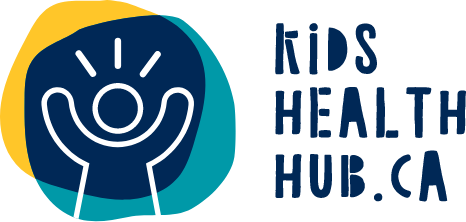

Dimensions of Health
How do you feel when you wake up on your best day?
You probably feel well-rested. You probably wake up to a space that is clean and organized. You probably feel excited to start the day. Maybe you have plans to hang out with your friends or family. You probably feel in control of your emotions, and your body feels ready for the day.
When you wake up in the morning and feel this way, you are exhibiting signs of health. It is also important to recognize these signs of health in the children/youth you work with. You can take time in your day to do a mental inventory check to recognize if you are feeling healthy, and you can encourage children/youth to do the same to assess their wellness. This includes:
Physical Check: Does my body feel?
Emotional Check: Do I feel that I am in control of my emotions? Do I have a healthy way of coping with my emotions?
Relationship Check: Do I feel that I have people in my life that support and listen to me?

Dimensions of Health and what they mean
The dimensions of health give an integrative view of health that encompasses the whole individual. In conjunction with this integrative approach, no one dimension of health is more important than the next. All dimensions of health must be nourished for wellness. It is important to model and introduce healthy wellness habits to the youth in your life to encourage overall health in their present lives and in the future.
Intellectual health relates to stimulating the brain and challenging yourself. As you teach the children/youth in your life, you are contributing to their intellectual wellness. It is important to encourage children/youth in your life to learn or practice new skills as this will help them strengthen their intellectual health. Helping children/youth maintain their intellectual health helps them to increase their concentration and memory, and it also helps them develop coping skills to deal with life’s challenges.
- Do a puzzle
- Learn a new skill
- Play a board game
Physical health is probably the dimension we are most familiar with. Topics related to physical wellness are often covered in physical education and health classes. It relates to eating well, being physically active, and sleeping well. It is important to encourage these practices so that we can maintain the physical health of our bodies.
- Eat a healthy, balanced meal
- Drink enough water
- Have a good night’s sleep
Emotional health relates to our thoughts and feelings. It is accepting our emotions and being aware of how we feel. It is important to reinforce for students that their emotions are valid because they feel them. It is crucial to allow both yourself and the children/youth you work with to feel your emotions and express them in a healthy and positive way. Promoting emotional health can be as simple as providing a supportive space for your students to communicate their feelings.
- Practice identifying emotions
- Talk to a loved one
- Create a safe place to talk about emotions
Social health relates to your connections with others. Making connections is an important part of wellness. It doesn’t mean we need to have countless friends and loved ones. It is more about quality rather than quantity. It is important to foster healthy connections between peers to foster social wellness. In addition to being aware of your relationship with the children/youth you work with, it is also important to consider how this relationship contributes to their social health.
- Schedule quality time
- Offer positive feedback to children/youth you work with
- Encourage hobbies and positive connection
Spiritual health is about connecting with yourself. It relates to searching for meaning and purpose. Spiritual health can also relate to seeking connections between yourself and your environment. It is important to foster your own spiritual health as well as the children/youth you work with. Promoting mindfulness can be a way to increase spiritual health.
- Practice deep breathing techniques
- Connect with nature
- Take time for quiet reflection
Environmental health relates to your surroundings. This is your home, your living space, and the environment around you. It is important to foster a positive environment as it reflects a more productive learning environment.
- Cleaning/tidying your space
- Recycling
- Pick up litter
Occupational health relates to the enjoyment and fulfillment that you experience through your job. This could be taking care of your family, attending classes, or your job. It is important that your occupation makes you feel satisfied. Occupational health also relates to the balance between work and leisure that you experience in your everyday life. This means that it is paramount that you find an occupation that you feel suits your skills and talents as well as practice self-care habits that support work/life balance.
- Take a class
- Learn something new
- Volunteer or get a job in a field you are interested in
Please remember, that it is okay to have days that are off. You cannot feel your best every day. This is why it is important to practice self-care and focus on all of the dimensions of health so that you have the resiliency to deal with life’s challenges. It is okay not to be okay, but if you haven’t been feeling okay for a while, please look to the Mental Health Concerns Section.

Trending Topics
Depression
Depression What Is It? Depression is a mood disorder which means it impacts how a person is feeling. It can cause a person to feel
Accidental Overdose
Accidental Overdose What Is it? An overdose is what happens to someone’s body when they take too much of a substance or too many substances.
Online Relationships
Online Relationships Online can be fun! There are games, music, and videos. We can talk to friends and family online. Tips for Being Safe Online:
Online Relationships
Online Relationships Online can be fun! There are games, music, and videos. We can talk to friends and family online. Tips for Being Safe Online:

